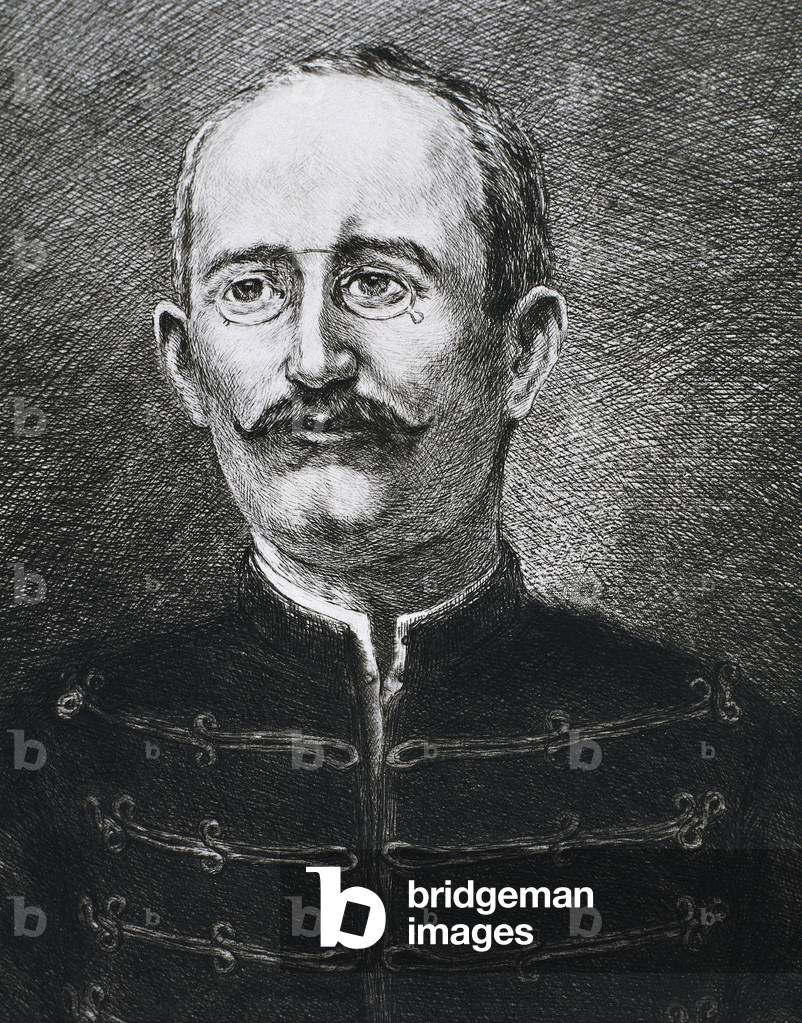Alfred Dreyfus: French Parliament To Vote On Posthumous Military Promotion

Table of Contents
The Dreyfus Affair: A Brief Overview
The Alfred Dreyfus case remains one of the most significant legal and political scandals in modern French history. Captain Alfred Dreyfus, a highly decorated officer of Jewish heritage, was falsely accused of treason in 1894. The accusations, based on forged documents, led to a swift and unfair military trial. Despite a lack of substantial evidence, Dreyfus was found guilty and publicly degraded in a humiliating ceremony before being exiled to Devil's Island (Île du Diable), a penal colony off the coast of French Guiana.
- False accusation of treason based on forged documents: The infamous bordereau, a note allegedly revealing French military secrets to Germany, was the cornerstone of the prosecution's case, despite its dubious origins.
- Unfair trial and military court conviction: The trial was characterized by a lack of due process, with evidence suppressed and antisemitic biases openly displayed.
- Degradation ceremony on Île du Diable: This public humiliation symbolized the depth of the prejudice against Dreyfus and the extent of the injustice inflicted upon him.
- Emile Zola's "J'accuse" open letter: This powerful and courageous open letter, published in the newspaper L'Aurore, denounced the injustice of the trial and reignited public debate.
- Public division and antisemitic sentiment: The affair sharply divided French society, revealing the extent of anti-Jewish sentiment within the military and broader public.
- Eventual exoneration and pardon: After years of relentless campaigning by Dreyfus's supporters, including his brother Mathieu Dreyfus, the truth eventually emerged, leading to his exoneration and pardon.
Arguments for Posthumous Promotion
The arguments in favor of posthumously promoting Alfred Dreyfus are compelling and multifaceted. They center on the need to rectify a profound historical injustice and to reaffirm France's commitment to justice and equality.
- Recognition of Dreyfus's unwavering innocence and the injustice he suffered: Promoting Dreyfus would formally acknowledge the egregious error committed by the French military and the profound suffering he endured.
- Symbol of France's commitment to fighting antisemitism and promoting justice: A posthumous promotion would send a powerful message that France actively confronts its past prejudices and remains committed to combating antisemitism.
- Rehabilitation of his military reputation and honor: The promotion would restore Dreyfus's military honor, which was unjustly tarnished by the false accusations.
- Moral imperative to right a historical wrong: Many argue that promoting Dreyfus is a moral imperative, a necessary step to formally acknowledge and redress the injustice perpetrated against him.
- Importance of symbolic gestures in fostering national reconciliation: The gesture could play a crucial role in fostering national reconciliation and promoting a more inclusive national memory.
Arguments Against Posthumous Promotion
While the case for Dreyfus's promotion is strong, counter-arguments exist. These often center on concerns about the implications of revising historical judgments and the potential for further division.
- Concerns about rewriting history or minimizing other aspects of the affair: Some argue that a posthumous promotion could overshadow other critical aspects of the Dreyfus Affair, such as the roles of individuals who participated in the injustice.
- Potential for political divisions and controversies: The vote could further polarize French society and re-ignite old tensions.
- Argument that the past should be left undisturbed: Some believe that historical judgments, even if flawed, should remain unchanged, even if morally wrong.
- Focus should be on present-day efforts to combat antisemitism: Some argue that resources and energy should be focused on tackling contemporary antisemitism rather than revisiting past events.
- Debate about the appropriateness of military promotions for historical figures: There's an ongoing discussion on whether military promotions are the appropriate way to address historical injustices.
The Ongoing Relevance of the Dreyfus Affair
The Dreyfus Affair continues to resonate deeply, its lessons as pertinent today as they were over a century ago.
- Continues to serve as a cautionary tale against injustice and prejudice: The case serves as a stark reminder of the dangers of unchecked nationalism, antisemitism, and the fragility of justice.
- Highlights the dangers of unchecked nationalism and antisemitism: The Affair exposed how easily prejudice and xenophobia can infiltrate institutions and lead to grave injustices.
- Importance of independent judiciary and free press: The crucial role played by individuals who challenged the official narrative highlights the importance of independent judiciaries and a free press.
- Relevance to modern discussions of social justice and human rights: The case remains a powerful symbol in ongoing discussions about social justice, human rights, and the fight against discrimination.
- Its significance in the fight against discrimination: The Dreyfus Affair remains a pivotal moment in the broader struggle against antisemitism and all forms of discrimination.
The Parliament's Decision and its Implications
The outcome of the parliamentary vote on Alfred Dreyfus's posthumous promotion will have significant implications for France and beyond.
- Potential impact on national memory and public perception: A positive vote would likely reshape France's national memory, offering a more inclusive narrative of its past.
- Symbolism of the vote for France's image internationally: The decision will be closely watched internationally, shaping perceptions of France's commitment to justice and human rights.
- Future discussions regarding similar historical injustices: The vote could prompt similar discussions regarding other historical injustices and potential redress.
- Potential for further research and education about the Dreyfus Affair: Renewed interest in the case may spur further research, education initiatives, and public discussions.
- Influence on ongoing debates about antisemitism and racism: The outcome could significantly influence ongoing debates about antisemitism, racism, and the fight for social justice.
Conclusion
The upcoming vote on the posthumous promotion of Alfred Dreyfus is a momentous occasion, revisiting a critical chapter in French history. The debate surrounding this decision highlights the continuing relevance of the Dreyfus Affair and its enduring legacy in shaping discussions about justice, antisemitism, and national identity. Regardless of the outcome, the renewed interest in the Alfred Dreyfus case serves as a powerful reminder of the importance of vigilance against injustice and the ongoing fight for equality. Will the French Parliament finally grant Alfred Dreyfus the military honor he deserves? Let’s wait and see the outcome of this significant vote related to the enduring legacy of the Alfred Dreyfus case.

Featured Posts
-
 Amundi Msci World Ii Ucits Etf Usd Hedged Dist Nav Calculation And Analysis
May 25, 2025
Amundi Msci World Ii Ucits Etf Usd Hedged Dist Nav Calculation And Analysis
May 25, 2025 -
 M56 Closed Live Traffic Updates And Motorway Crash Information
May 25, 2025
M56 Closed Live Traffic Updates And Motorway Crash Information
May 25, 2025 -
 Joy Crookes Latest Release The Single Carmen
May 25, 2025
Joy Crookes Latest Release The Single Carmen
May 25, 2025 -
 France Debates New Legislation On Underage Criminal Sentencing
May 25, 2025
France Debates New Legislation On Underage Criminal Sentencing
May 25, 2025 -
 Relx Doorstaat Economische Zwakte Dankzij Ai Sterke Groei Voorspeld Tot 2025
May 25, 2025
Relx Doorstaat Economische Zwakte Dankzij Ai Sterke Groei Voorspeld Tot 2025
May 25, 2025
Latest Posts
-
 Farrows Plea Hold Trump Accountable For Venezuelan Gang Member Deportations
May 25, 2025
Farrows Plea Hold Trump Accountable For Venezuelan Gang Member Deportations
May 25, 2025 -
 Actress Mia Farrow Demands Trumps Arrest For Venezuelan Deportation Policy
May 25, 2025
Actress Mia Farrow Demands Trumps Arrest For Venezuelan Deportation Policy
May 25, 2025 -
 Actress Mia Farrow Seeks Trumps Imprisonment Regarding Venezuelan Deportations
May 25, 2025
Actress Mia Farrow Seeks Trumps Imprisonment Regarding Venezuelan Deportations
May 25, 2025 -
 From Fame To Shame 17 Celebrities Who Lost It All
May 25, 2025
From Fame To Shame 17 Celebrities Who Lost It All
May 25, 2025 -
 The Downfall 17 Celebrities Whose Careers Imploded
May 25, 2025
The Downfall 17 Celebrities Whose Careers Imploded
May 25, 2025
